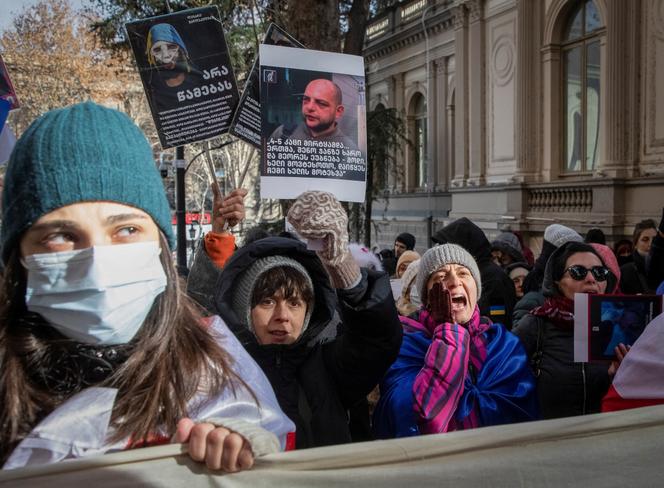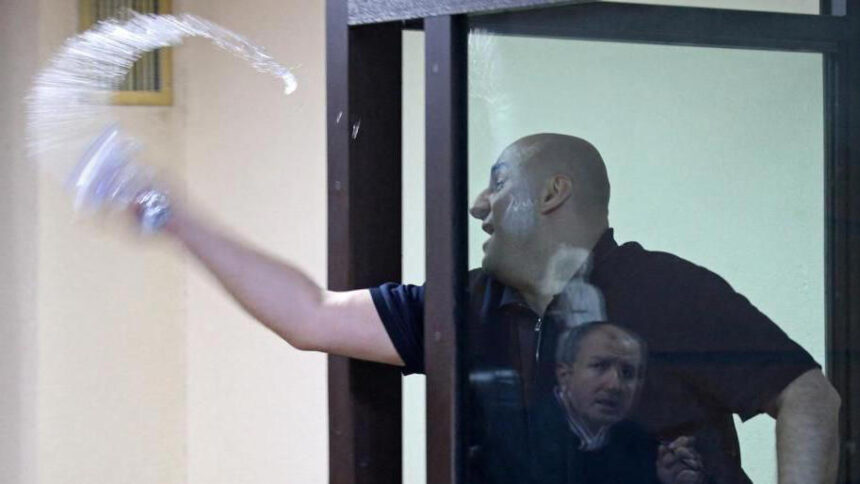Introduction
Georgia political crackdown democratic future is under intense global scrutiny after the jailing of six prominent opposition leaders in a single week. The government, led by the Georgian Dream party and billionaire founder Bidzina Ivanishvili, is facing widespread condemnation for what civil society groups describe as “a full-scale authoritarian offensive.” The arrests follow months of political unrest over Georgia’s suspended European Union bid and contested parliamentary elections.

A Wave of Arrests Rocks Georgia
On Friday, opposition leader Nika Melia, head of the Coalition for Change, was sentenced to eight months in prison for refusing to testify before a parliamentary commission. In the same ruling, ex-MP Givi Targamadze received seven months. These convictions are part of a broader campaign that has seen a total of six opposition leaders jailed and two more placed in pre-trial detention.
Others sentenced include:
- Giorgi Vashadze
- Zurab Japaridze
- Badri Japaridze
- Mamuka Khazaradze
All have been barred from public office for two years.
Accusations of Authoritarianism
Anti-corruption watchdog Transparency International labeled the crackdown “the most severe democratic collapse in Georgia’s post-Soviet history.” According to their statement, Georgian Dream is weaponizing legal tools to silence dissent and dismantle pro-European opposition groups.
The charges against these leaders stem from their refusal to comply with a parliamentary inquiry, which many believe was politically motivated. “This is not about justice. This is about crushing political opposition,” said one Tbilisi-based civil rights lawyer.
Protests and International Reaction
Since last year’s disputed elections and the government’s suspension of its EU candidacy, nightly pro-European protests have continued in central Tbilisi for more than 200 consecutive days. As many as 500 people have been arrested, with human rights organizations claiming that over 300 detainees were tortured in custody and at least 60 are being held as political prisoners.
Norway and other Western nations have condemned the detentions. “This is an unprecedented attack on Georgia’s democracy,” read a statement from the Norwegian Foreign Ministry.
Media Censorship and Intimidation

Alongside opposition politicians, independent journalists are also under fire. Acclaimed reporter Mzia Amaglobeli was arrested in January and remains jailed. Independent broadcasters now face economic sanctions and censorship, raising alarm over press freedom in Georgia.
Bidzina Ivanishvili’s Grip on Power
Bidzina Ivanishvili, who formally retired from politics in 2021, is widely believed to control the country’s executive, judiciary, and legislature. He made his fortune in Russia and is currently under U.S. sanctions. Forty Georgian civil groups recently released a joint letter stating he had “chosen to maintain power through dictatorship.”
In a bizarre development, a former ally of Ivanishvili, Giorgi Bachiashvili, claimed he was kidnapped abroad and returned to Georgia by force. He was convicted in absentia for alleged financial crimes that he says are politically motivated.
Government Defends Actions
Prime Minister Irakli Kobakhidze defended the arrests, asserting that the commission is exposing criminal elements within the prior administration, especially relating to Georgia’s 2008 war with Russia. “There is no place for criminals in Georgian politics,” he told parliament.

Conclusion
As Georgia’s opposition leaders fill the nation’s prisons and journalists face repression, fears are growing that the country is veering away from democracy. With mounting Western pressure and growing domestic unrest, the future of Georgia’s political system—and its aspiration to join the European Union—hangs in the balance.
Stay updated on democratic struggles around the world by following The Morning News Informer – World News.









